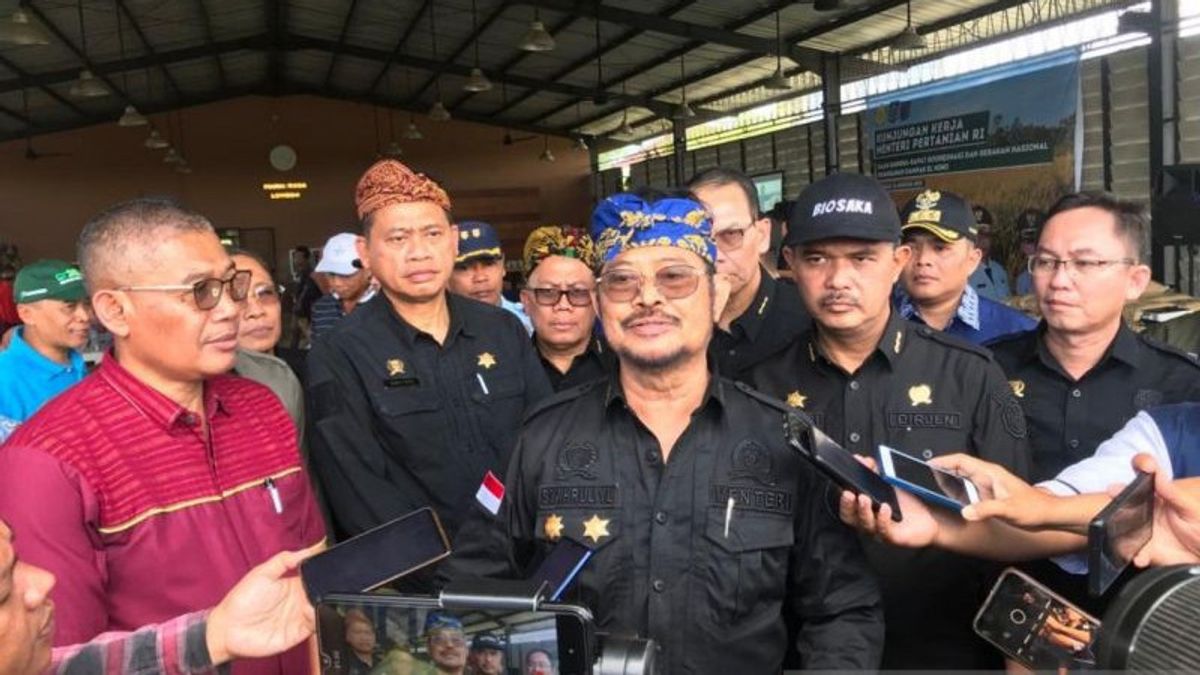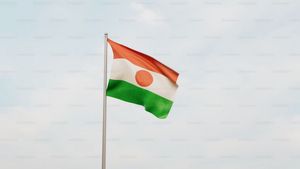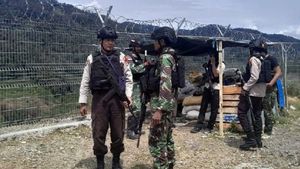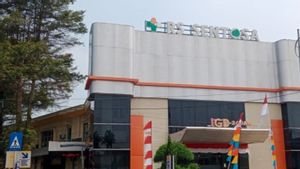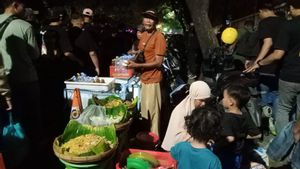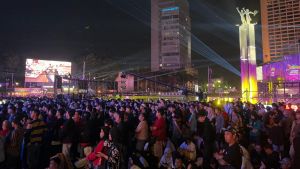MATARAM - The central government has designated six provinces in Indonesia that will become the backbone of the national rice supply in anticipation of the impact of the El Nino disaster.
"The president has ordered us to look for provinces that can be a mainstay against El Nino. And we have prepared those steps," said Minister of Agriculture (Mentan) Syahrul Yasin Limpo while chairing a coordination meeting and national movement to deal with the impact of El Nino in Mataram, West Nusa Tenggara (NTB) as reported by ANTARA, Saturday, August 12.
He said the six provinces were North Sumatra, South Sumatra, West Java, Central Java, East Java, and South Sulawesi. The six provinces have been playing a national food production center.
"These six provinces could be the saviors of the Republic of Indonesia in facing the extreme climate of El Nino," he said.
Syahrul said as a concrete step, the Ministry of Agriculture has prepared nine schemes as a strategy to anticipate the extreme climate of the El Nino effect, including identification and mapping locations affected by drought, accelerating planting, increasing the availability of agricultural equipment and machinery (alsintan), increasing water availability.
Then, providing drought-resistant seeds, 1,000 hectares of program, development of centralized and independent organic fertilizers, support for KUR financing and agricultural insurance, preparation of food barns to the village level.
"Earlier, I immediately planted here with the Mayor. Three months later we had new rice, that's what we want to achieve," he explained.
According to the former Governor of South Sulawesi, in dealing with El Nino, his party has asked all provinces and regencies and cities in Indonesia, including in NTB to take anticipatory steps, so as not to have an impact on reducing food production.
"This coordination meeting is in order to anticipate El Nino's weather, because if it is not anticipated properly, El Nino has a significant impact on reducing production," he said.
VOIR éGALEMENT:
Meanwhile, regarding the identification and mapping of locations affected by drought, his party has grouped green, yellow and red areas.
"We hope that with a fairly strict agenda we will carry out on the three parts of the region that we have mapped in each province and district, there are green areas that must continue to booster because the water is still sufficient, there is a yellow area where the water is mediocre for that we have to dam and use it as effectively as possible," explained Syahrul.
In the yellow area, the Ministry of Agriculture will intervene through the provision of drought-resistant seeds and OPT, mechanization intervention, and technology. Especially in red areas, namely areas with a water deficit, in the future other commodities will be planted to strengthen food security in the area.
"The red area is a dry area, an area without El Nino is indeed a problem. Therefore, we will strengthen this red area - food reserves that must be boosted up to 100 thousand hectares," he said.
The English, Chinese, Japanese, Arabic, and French versions are automatically generated by the AI. So there may still be inaccuracies in translating, please always see Indonesian as our main language. (system supported by DigitalSiber.id)
